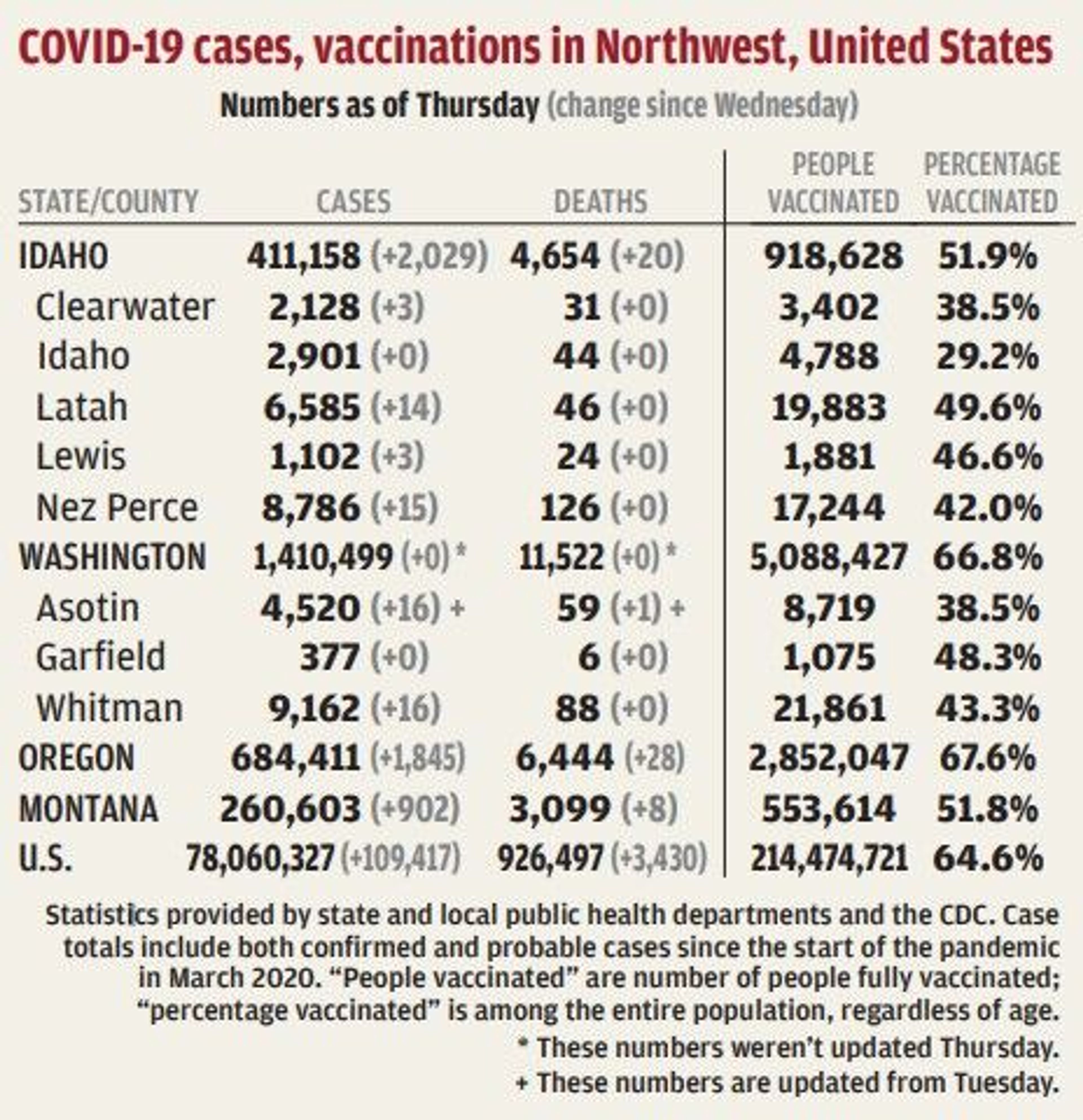Area hospitals fear sharp federal cuts
THE PALOUSE
Hospitals in Pullman, Moscow and Colfax all fear significant reductions in Medicare reimbursements as a result of a report from the U.S. Department of Health and Human Services and President Barack Obama's proposed 2014 budget.
Last month, the Office of Inspector General, Department of Health and Human Services, recommended changing standards by which hospitals would qualify for Critical Access Hospital status. Obama's proposed 2014 budget, issued in January, included other proposed reforms that would decertify many hospitals on similar grounds.
Pullman Regional Hospital and Gritman Medical Center in Moscow seem to be most in danger of losing their CAH status because they are only about 9.5 miles apart. Whitman Hospital and Medical Center in Colfax also qualifies as a CAH, but at 17.9 miles from PRH, is still relatively isolated, a key determining factor.
The CAH status provides them higher reimbursements from Medicare, about $5 million in Pullman's case and up to $3.5 for Gritman.
"Smaller rural hospitals get fewer patients than hospitals in densely populated areas, which makes them more expensive, relatively, to operate," said Whitman Hospital and Medical Center CEO Debbie Glass. "The Critical Access Hospital program has kept many rural hospitals open."
Congress created the CAH program in 1997. It pays CAHs 101 percent of the cost for Medicare patients to ensure all beneficiaries living in rural areas have access to health care services.
To qualify as a CAH, a hospital has to be at least 35 miles from any other hospital, or 15 miles in mountainous terrain, have fewer than 26 beds, have an emergency room that operates 24/7 and the average patient stay must not exceed 96 hours. Prior to 2006, however, states were allowed to designate certain hospitals as exempt from these
qualifications by naming them as a "necessary provider" of health care services.
Each of the three hospitals in Whitman and Latah counties fall under the "necessary provider" provision.
The inspector general's August report recommends changing the qualifications back to original standards, removing the "necessary provider" exemption and making the 15-mile distance requirement for mountainous terrain applicable to all CAHs, regardless of geography.
The report concluded Medicare could save hundreds of millions of dollars each year nationwide with these recommendations.
CAHs are also facing potential reductions from Obama's proposed 2014 budget, which would decertify CAHs within 10 miles of another hospital. The proposed budget also suggests trimming the reimbursements to CAHs down to 100 percent of the cost of care.
While the results of these proposed changes might mean substantial savings on a national level, the effect on hospitals and local communities would be significant, as well, said Pullman Regional Hospital CEO Scott Adams.
"It's unclear at the moment which hospitals might lose their critical access designation, but if we did, we would lose funding to the tune of millions, probably about $5 million per year," Adams said. "It will force us to make decisions about which services we'll be able to continue to offer and which we'll have to cut."
Gritman Medical Center's Chief Financial Officer Arebi Garsa said losing CAH status would cost Gritman between $2 to $3.5 million annually, and that funding cuts seem to be happening more and more regularly.
The effect of the cuts will be felt by the local community, Adams said.
"When you start reducing services, there's a corresponding impact, a ripple effect that goes beyond just the hospital," Adams said.
Adams said to keep that from happening, leaders in the medical community are lobbying Congress to persuade key legislators of the essential role of the CAH program in rural hospitals.
Recently, a bipartisan group of 20 U.S. senators, including Sens. Maria Cantwell, D-Wash., and Mike Crapo, R-Idaho, sent a letter to the heads of the Senate Finance Committee objecting to the proposed cuts to Medicare reimbursements.
The Aug. 22 letter stated the coalition of senators support "smart, targeted Medicare reforms," but that "indiscriminate cuts to CAHs are not the answer," and specifically takes issue with "the elimination of CAH designation to hospitals based on an arbitrary number of miles between facilities."
Other than working with legislators, Adams said many other steps are being taken to prepare for funding cuts, which he said are nothing new to rural hospitals.
"We're really focusing on fundraising," said Community Relations Coordinator Alison Weigley. "It's really been a trend nationwide for hospitals to be ramping up their fundraising. We're trying to be proactive in that way, since we're receiving less and less government assistance."
At Gritman, efforts emphasize increasing efficiencies to deal with the potential CAH reductions and other ongoing cuts, Garsa said.
"That's what most hospitals are having to do. The best way they can prepare for what's coming is to focus on efficiency," Garsa said. "We're focusing on using technology and our available resources to provide quality care as efficiently as possible to meet the health care needs of our community."
Bill McKee can be reached at (208) 883-4627, or by email to wmckee@dnews.com.






